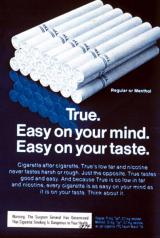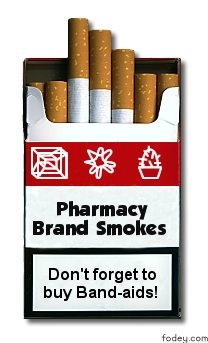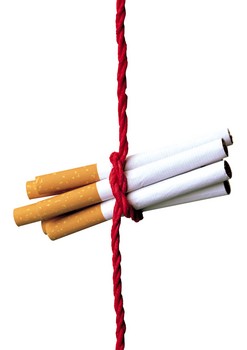Master Settlement Agreement, or a Masterful Status-quo Agreement?
November 23, 2008 marks ten years since 46 state Attorneys General and the major American tobacco companies signed the big tobacco Master Settlement Agreement (MSA). Besides being the largest legal settlement in history and resolving an unprecedented onslaught of litigation against the industry, the MSA required tobacco companies to pay approximately $200 billion to the states over 25 years (subject to tweaks for inflation and market share).
 The devil, however, was in the details. Heralded at the time as a defeat for the tobacco industry and a victory for public health, the MSA has actually done little to change the status quo. It ended some forms of tobacco advertising, for example, but the restrictions adopted were in reality less important to the industry than to public health authorities. The industry abandoned billboards and transit ads, ads in magazines with a high youth readership, and ads within a certain distance of schools. However, it continued marketing through high levels of advertising, bar nights, event sponsorships, direct mail, and retail placements.
The devil, however, was in the details. Heralded at the time as a defeat for the tobacco industry and a victory for public health, the MSA has actually done little to change the status quo. It ended some forms of tobacco advertising, for example, but the restrictions adopted were in reality less important to the industry than to public health authorities. The industry abandoned billboards and transit ads, ads in magazines with a high youth readership, and ads within a certain distance of schools. However, it continued marketing through high levels of advertising, bar nights, event sponsorships, direct mail, and retail placements.

 Cholesterol-reducing drugs called statins have been in the news lately following the release of a major medical
Cholesterol-reducing drugs called statins have been in the news lately following the release of a major medical  Philip Morris
Philip Morris A three-year, $7 million neuromarketing study done in Oxford, England has found that cigarette health warning labels actually make
A three-year, $7 million neuromarketing study done in Oxford, England has found that cigarette health warning labels actually make  An analysis of tobacco industry documents published in the
An analysis of tobacco industry documents published in the  Secret documents recently obtained by British reporters under the United Kingdom's Freedom of Information Act show that former UK Prime Minister
Secret documents recently obtained by British reporters under the United Kingdom's Freedom of Information Act show that former UK Prime Minister  The U.S.
The U.S.  On October 1, 2008, the city of San Francisco put a
On October 1, 2008, the city of San Francisco put a  Germany's Federal Medical Society is proposing to classify
Germany's Federal Medical Society is proposing to classify